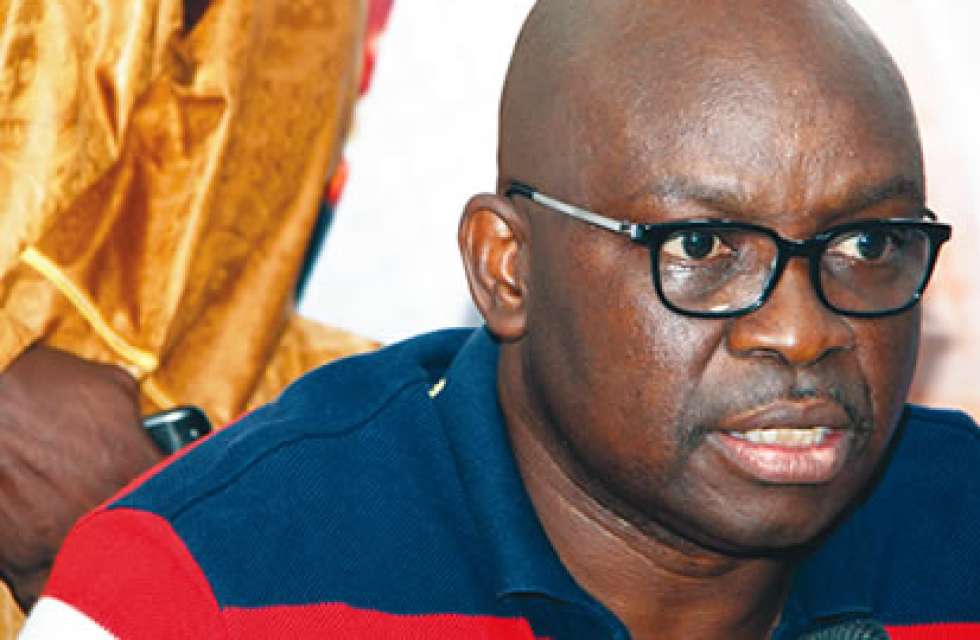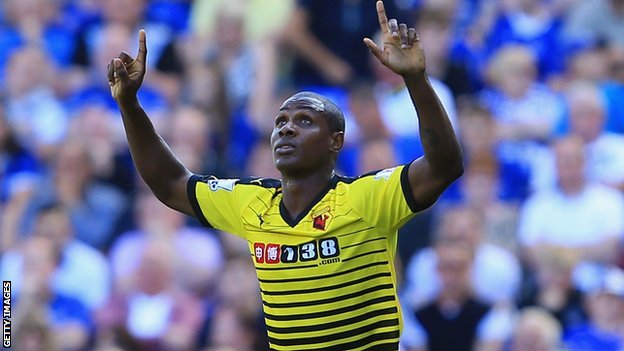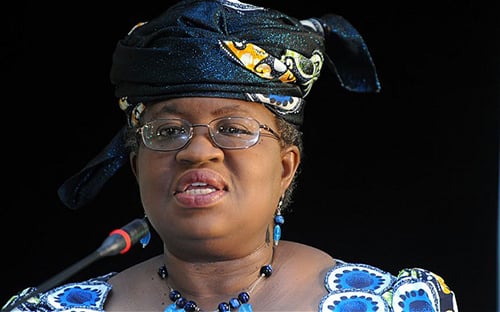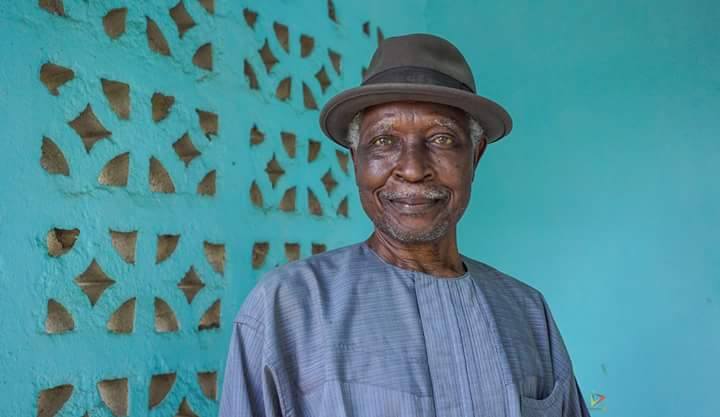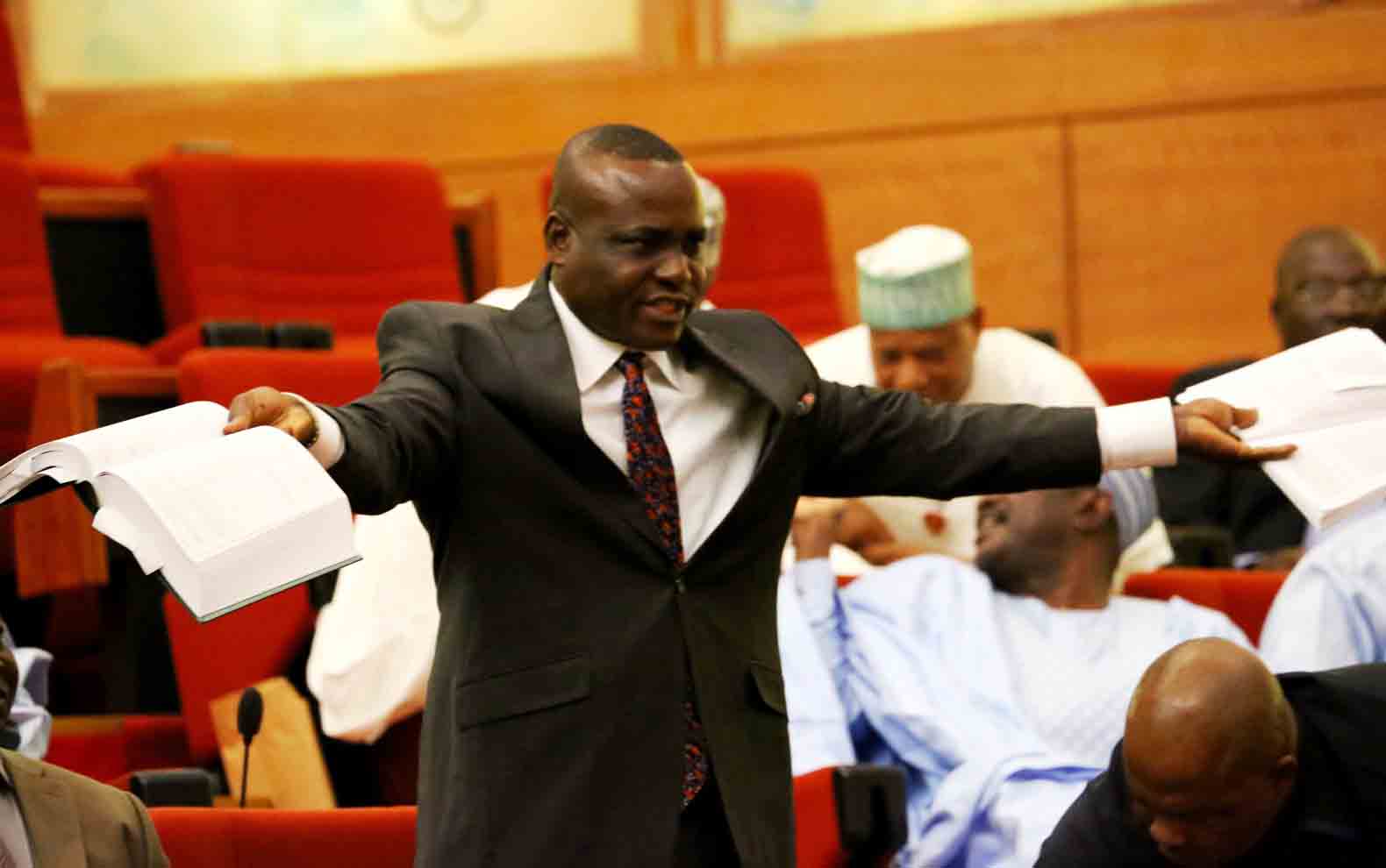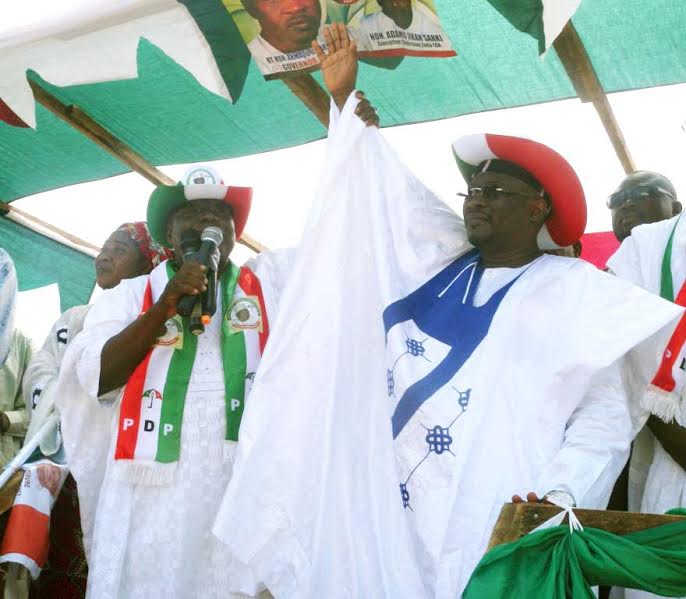I’m suspicious of superstitions but not in the Fayose Vs Zenith Bank narrative. We all know the story, but we can’t predict how it will end yet.
And after seeing images of a banker on his kneels allegedly begging the Ekiti State Governor, Ayodele Fayose, circulating on social media this past few days, I feel there may be the need to bring back a part of the article I once published on this page.
Seriously, in Fayose’s narrative there may be some element of truth that we cannot dismiss.
So one thing I wish to do today is to republish a part of my article of December 18, 2015 under a new title.
Advertisement
This is the connection. Inside our banking halls, rules are being broken and the system needs to be fixed as a matter of urgency.
The battle inside banking hall has been about good versus evil and greed versus greatness.
The clear truth is that the banks are barely managing to survive. The banks are like patients that now require diagnosis.
Advertisement
I’m sure we have not forgotten the brawl between the Central Bank of Nigeria’s Governor, Godwin Emefiele and the Executive Secretary of the Nigeria’s Financial Reporting Council, Jim Obazee, over the suspension of some bank executives in October 2015. That should help us to understand how much of a rotten egg the banking institution has become.
Today, the reputation of the banks continue to sag in the face of revelation that some of the arms money passed through them in a suspicious way without any leakers taking the courage to alert the tax payers on the scale of money laundering in our banking system.
Despite banking laws designed to flag the movement of large sums of money by private individuals and government figures, their families and close associates, the Nigerian banks ignored several atrocities of the clique to become accomplice in undermining our country’s economic growth. Should the bank heads, where the suspicious funds have been traced to be spared? I will simply say no, no, no!
Of course that will make mess of the war against corruption, because such banks will continue to aid and abet the corrupt politicians.
Advertisement
But one of many reasons why the bankers will continue to collude with those stealing us dry is that a lot of these dirty monies have kept the banks alive.
So the heads of the banking institutions will prefer that money laundering goes on in the country, while they shy away from reporting it as part of their duties. Indeed, to make known the dirty act will be against their selfish interest.
The Nigerian banking system is still filled with unethical conduct practices that include insider abuse, fraudulent dealings, irregularity/inaccuracy in the rendition of statutory returns, window dressing of accounts, poor corporate governance and many more that have now made the banking reform of 2009 a useless adventure.
The Global Integrity report released in 2015 shows that Nigeria is culpable in illicit financial flows as the 10th country on the list.
Advertisement
Of course the CBN responded by issuing a press statement to build citizens’ confidence. But cleverly, the apex bank first whittled down the effect of the report that was an indictment on its supervisory role by creating an impression that the report may be fictitious since it couldn’t undertake “independent confirmation of this assertion,” and then went on to confirm that “the report estimates that about US$15.7 billion of illicit funds go through our system annually.”
To be sure, the CBN’s had said in the statement that “In the light of this avoidably negative commentary, we wish to draw the public’s attention to several protocols on illicit fund flows, money laundering, and terrorism financing both in Nigeria and around the world, and warn that the CBN will increase its vigilance to ensure that Nigerian banks are not used as conduits for illicit fund flows, especially in foreign currencies.”
Advertisement
Regrettably, it turned out that CBN has been involved in the cash-and-carry business. The CBN shirked its own responsibility as a regulator to become a participant in illegal activity of allowing hard currency to be freighted from its doorpost into homes of politicians and their contractors. What a shame!
Already, Alhaji Umaru Ibrahim Managing Director/Chief Executive of the Nigeria Deposit Insurance Corporation (NDIC), had said in June this year that unethical deals has been one reason Nigerian banks are sick. Poignantly, he made that statement after a special examination conducted on the 24 banks in Nigeria by the CBN and NDIC revealed that 10 of the 24 banks were critically distressed as a result of many factors amongst which was poor corporate governance.
Advertisement
“The special examination revealed that boards and executive managements in some banks were not equipped to run their institutions as their ineffectiveness manifested in the form overbearing influence of some board members, ineffectiveness of board committees; non-adherence to the CBN code of corporate governance and weak ethical standards amongst others,” he said.
And I agree with him that some bank directors should rethink their suitability and competence to remain as bank directors in the face of the ongoing revelations. The supervision and management of banks should be on personal responsibilities of directors and chief executive officers.
Advertisement
Yes, one may draw many conclusions from the ongoing anti-corruption campaign of President Muhamadu Buhari’s government, but we cannot deny that Buhari has paid careful attention to facts, conducted excellent investigations and steel himself for his action. We are all eyewitnesses to history.
Follow me on Twitter@adeolaakinremi1
Add a comment

